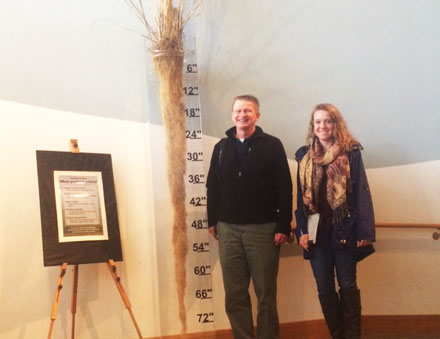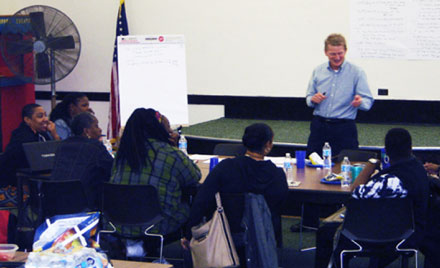Place-making & Communities
Building Community resilience in protected grasslands

This study is directed at understanding changes in social and economic conditions of rural communities, and adapting a framework that builds community resilience, in context of grassland protection. Our objectives are to: (1) conduct a nation-wide assessment of the economic impacts of bison re-introduction in contexts of protected grasslands; (2) engage with community stakeholders at two study sites in rural Illinois and Iowa to assess a regional sense of place and capacity for change using in-depth techniques; (3) determine the tradeoffs residents of the two study sites are willing to make among competing future growth scenarios using stated preference modeling; and (4) foster mutual learning and explore ways that stakeholders of the two study sites can adapt to change in response to the results generated in the proposed study. The orientation of this study will enhance the capacity of rural communities to frame regional development of natural amenities, like grassland protection, as opportunities to strengthen their social and economic well-being.
Assessing the Benefits of Chicago’s Large Lot Program

We are assessing the benefits of the City of Chicago “Large Lot Program,” which is a residential land use approach developed as part of the City’s Green Healthy Neighborhoods public planning process. The program allows homeowners in qualifying neighborhoods to purchase vacant lots on their block for $1 for green space and developed uses. It is being piloted in community areas where the City owns large amounts of vacant land with the goals to: 1) Give local residents greater control over vacant land in their neighborhood; 2) Increase safety, build community, and raise home values by creating more neighborhood-level investment; 3) Dispose of some of the City-owned land in these neighborhoods efficiently, which returns the land to the tax rolls; and 4) Create wealth in the community by allowing owners to sell land after 5 years. This research has the potential to better understand the social and environmental aspects of urban natural resource stewardship, how private lands can contribute public benefits, how urban sustainability initiatives can jointly address social, environmental and economic concerns, and how green space programs can include a broader range of individuals across social and economic groups.
